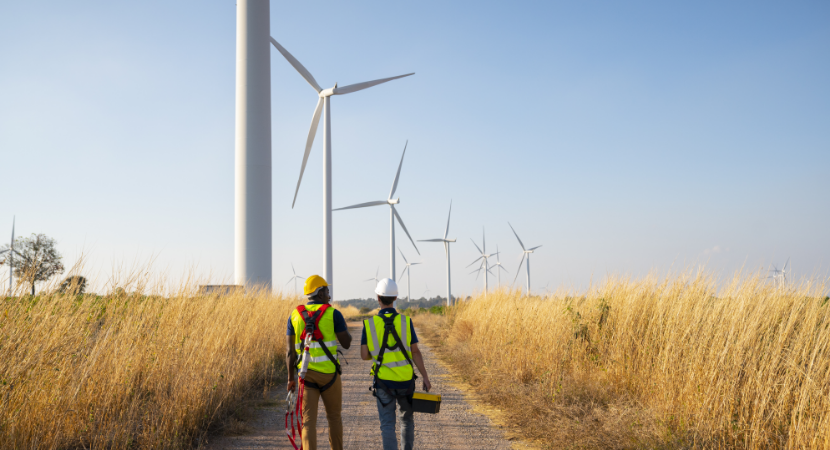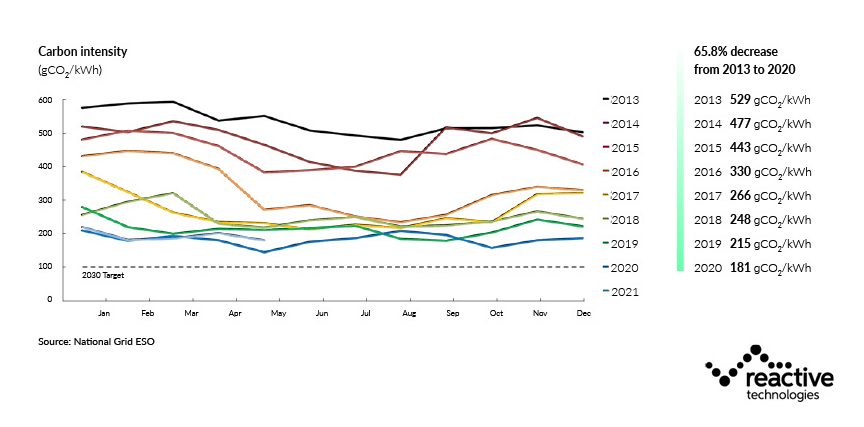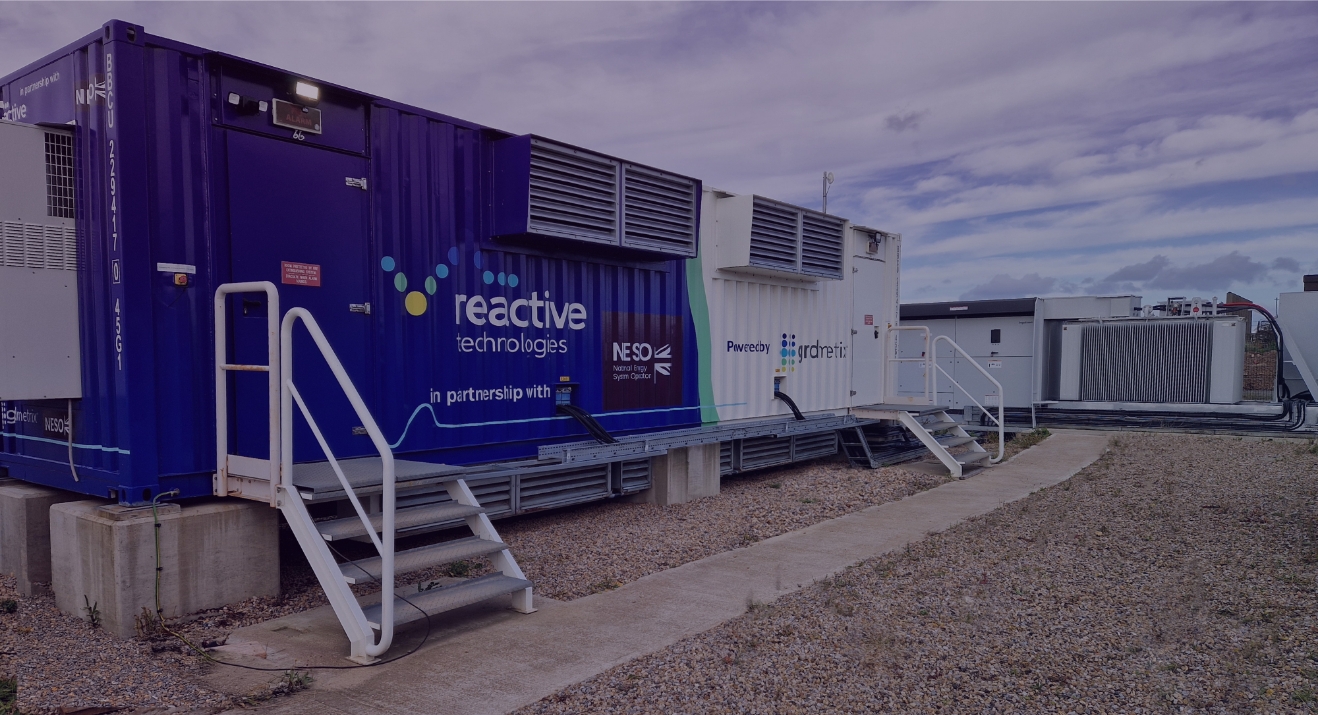In Brief
- National Energy System Operator (NESO) is a UK-based grid operator.
- National Energy System Operator (NESO) set a new industry best practice by incorporating inertia measurements into their overall renewable energy transition strategy.
- Reactive Technologies has been working in close partnership with the National Energy System Operator (NESO) team to collect accurate grid inertia measurements, using its flagship, GridMetrix® tool
- As a result, National Energy System Operator (NESO) has established itself as a model for grid managers around the world seeking a rapid but safe and resilient renewable energy transition.

Customer Profile
National Energy System Operator (NESO) is leading Great Britain in transitioning to a net zero grid. Years ago, Great Britain’s energy was generated by a small number of very large power stations that ran on fossil fuels. Today, there are lots of new and cleaner sources of generation, from huge wind farms in Scotland to solar farms on the coast of England.
National Energy System Operator (NESO) is on a mission to ensure these renewable generators can connect to the grid and eventually meet 100% of Britain’s power needs. National Energy System Operator (NESO) realized they need to do this whilst maintaining safe, reliable, and affordable electricity supplies and delivery. They recognized grid visibility, in particular visibility of grid inertia, a major challenge to their ambitions.

Case Overview
Widely recognized as a global leader in transitioning energy systems to zero carbon operation, National Energy System Operator (NESO) identified the need for visibility of grid inertia as a requirement for a safe and smooth transition early on. The company identified Reactive Technologies’ GridMetrix® as a promising solution and began a phased deployment across the UK, with promising results.

The Situation
National Energy System Operator (NESO) was making great strides toward its goal of a net zero power grid. However, operators there discovered that decreasing inertia due to more renewable energy sources on the grid was leading to higher costs and a greater risk of grid instability.
The Challenge
Without a way to accurately measure inertia on the grid, the team at National Energy System Operator (NESO) worked from estimates of inertia. But they soon learned that inaccurate inertia estimates forced them to take conservative, expensive risk mitigation measures, such as buying excess fossil fuel-generated power to act as a backup in case of frequency fluctuations. This is the opposite of what they would like to happen as they strive toward net zero carbon goals. The National Energy System Operator (NESO) team knew if they could get grid visibility, they could make more accurate decisions about inertia, allowing them to scale up renewables and scale down fossil fuel sources of energy.
They wanted to find a way to decrease the costs of running renewables on the grid, and also keep the grid stable as they added more renewables to it.
National Energy System Operator (NESO) enlisted the help of Reactive Technologies to show the way.
The Solution
National Energy System Operator (NESO) contacted Reactive Technologies, who worked with them to initially send signals through the grid as a test. After the test phases showed the signals successfully passing through the grid as needed, Reactive provided National Energy System Operator (NESO) with accurate grid inertia measurements
using their first-of-its-kind tool, GridMetrix® going service, National Energy System Operator (NESO) purchased a 6-year commercial service with Reactive Technologies to continue to monitor inertia and move forward on their goal to get Great Britain’s power grid to net zero.
Looking Ahead
With a business case being successfully identified for ongoing service, National Energy System Operator (NESO) purchased a 6-year commercial service with Reactive Technologies to continue to monitor inertia and move forward on their goal to get Great Britain’s power grid to net zero.

Results
National Energy System Operator (NESO) performed a blind test that compared inertial measurements from Reactive Technologies to National Energy System Operator (NESO)’s own estimate-based measurements. The results indicated that the inertia measurements showed promise, particularly during lower inertia periods such as during a bank holiday. However, the results also showed that a bigger modulator was required in order to achieve a better signal-to-noise ratio. Following the test, Reactive also improved the GridMetrix® algorithm to reject more noise in the frequency, and to fine-tune the results.
The project ended as a success, with National Energy System Operator (NESO) saving £14 million per year, thanks to the accurate grid insights made available to them. They are now moving forward with their plans to add more renewables to the grid and power Great Britain with clean energy.
Fintan Slye
CEO National Grid ESO (UK)
“One of the core things we will need to be able to do is to understand – in real time – what are the inertia levels on the system? That is why this technology is so ground-breaking. Because it enables us to ‘see’ that system state in real time and respond to it. And that allows us to first be able to get more and more renewables on, but at the same time make sure that we are continuing on operating the system in that safe and secure envelope.”



